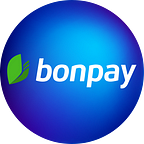Words “coin” and “token” are often used as synonyms and considered by many people as interchangeable. But they refer to two completely different concepts. So why many cryptousers confuse coins and tokens and what is the crucial difference between them?
In fast-changing sphere of cryptocurrency mass emergence of new terms led to misunderstanding and misuse of them. All coins and tokens are regarded to as cryptocurrency, despite the fact that many of them are not circulating as currency and were never meant to be. According to the definition, currency is a medium of exchange, unit of account or a store of value. Bitcoin has all these features, so the name “cryptocurrency” is justified in this case. But all coins and tokens, the mass production of which started after Bitcoin’s success, were named “cryptocurrency” by inertia, though many of them don’t fulfill necessary characteristics. So coins and tokens — two different kinds of units created using cryptography — are named cryptocurrency. This fact is misleading newbies, that want to buy some cryptocoins and then find themselves happy owners of tokens.
Coins
Coins (that are also often called altcoins or alternative cryptocurrency coins) are digital money, created using encryption techniques, that store value over time. Basically it is a digital equivalent of money. Bitcoin is the most famous example. Bitcoin is based on blockchain — public and distributed digital ledger, where all transactions can be seen. Data is stored collectively and shared between participants of blockchain network. Blockchain guarantees transparency and reduces fraud. There are coins based on Bitcoin’s original protocol, created by Satoshi Nakamoto and opened to the public (Litecoin, Namecoin) and coins that operate on blockchain, created specifically for them (Ripple, Monero).
Coins have the same characteristics as money: they are fungible, divisible, acceptable, portable, durable and have limited supply. Most ambitious crypto enthusiasts insist that coins will replace conventional money in the future.
The main characteristics of coins are:
1) they are tied to public-open blockchain — anyone is allowed to join and participate in the network;
2) they may be sent, received or mined.
Coins are not meant to perform any functions beyond acting as money.
Tokens
Tokens are digital assets, issued by the project, which can be used as a method of payment inside project’s ecosystem, performing similar functions with coins, but the main difference is that it also gives the holder a right to participate in the network. It may perform the functions of digital asset, represent a company’s share, give access to the project’s functional and many more — with the launching of new projects unknown facets of tokens’ functional are discovered. Ticket to a concert, for example, is a “real-life token” — you may use it at a certain time, at a certain place. You can’t go to the restaurant and pay your bill with concert ticket — ticket has its value only at concert hall. Digital tokens are the same — they have certain use case only inside certain project.
Tokens represent an asset or utility, so security and utility tokens are distinguished. Security tokens are designed to be the company’s share (token of notorious project DAO, that was hacked right after launching, was recognized as security token), while utility tokens have certain use case inside the project (BON Token).
Creating a token is easier than creating a coin, as you don’t have to create a new code or modify already existing one — you just use a standard template from platforms like Ethereum, that are blockchain-based and allow anyone to create tokens in just few steps. Using a template for creating tokens provides smooth interoperability, so users can store different types of tokens in one wallet. Ethereum was the first to simplify the process of creating a token, being not the last reason why tokens flooded the market.
Summary
Coins are just method of payment while tokens may present a company’s share, give access to product or service and perform many other functions. Coins are currencies that can be used for buying and selling things. You can buy a token with a coin, but not vice versa. Coin operates independently, while token has a specific use in the project’s ecosystem.
